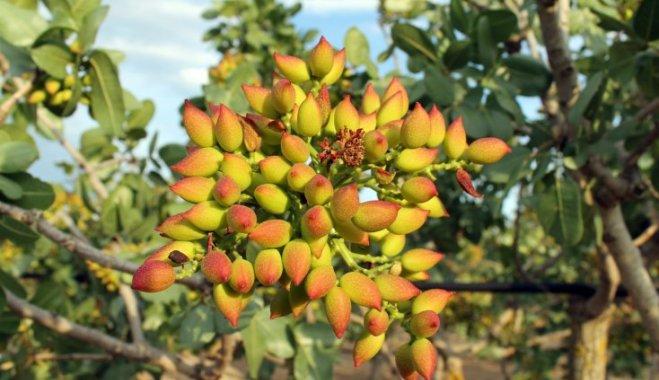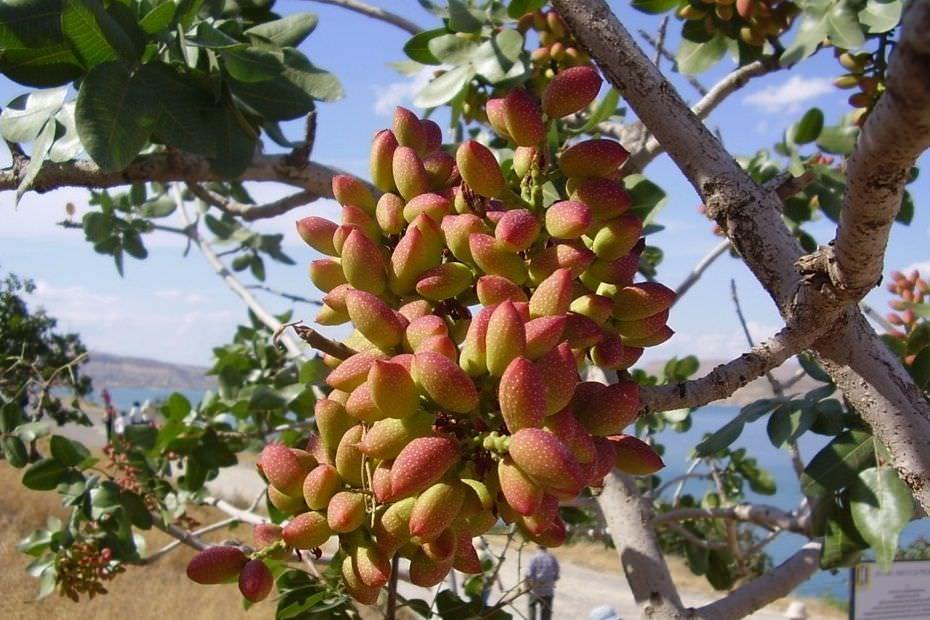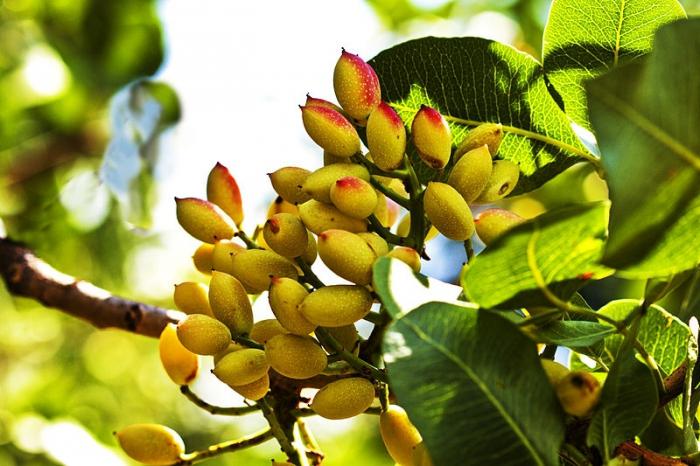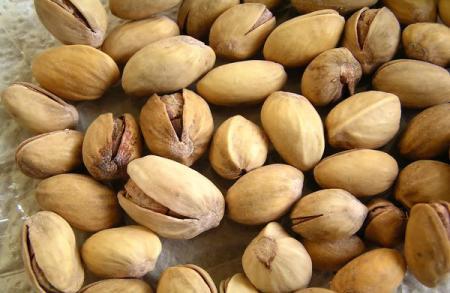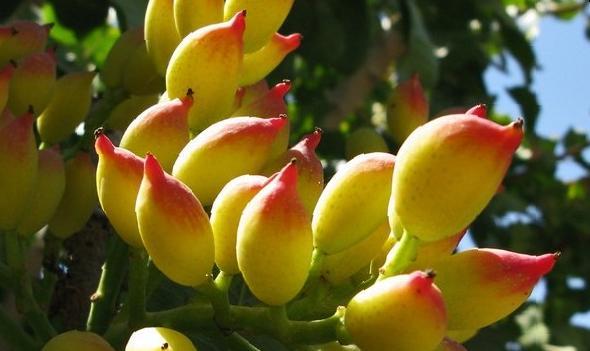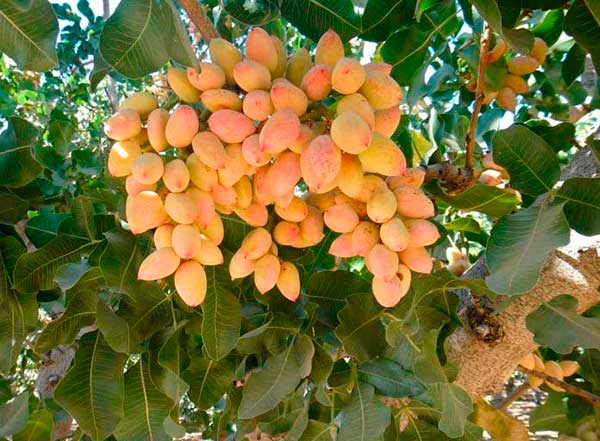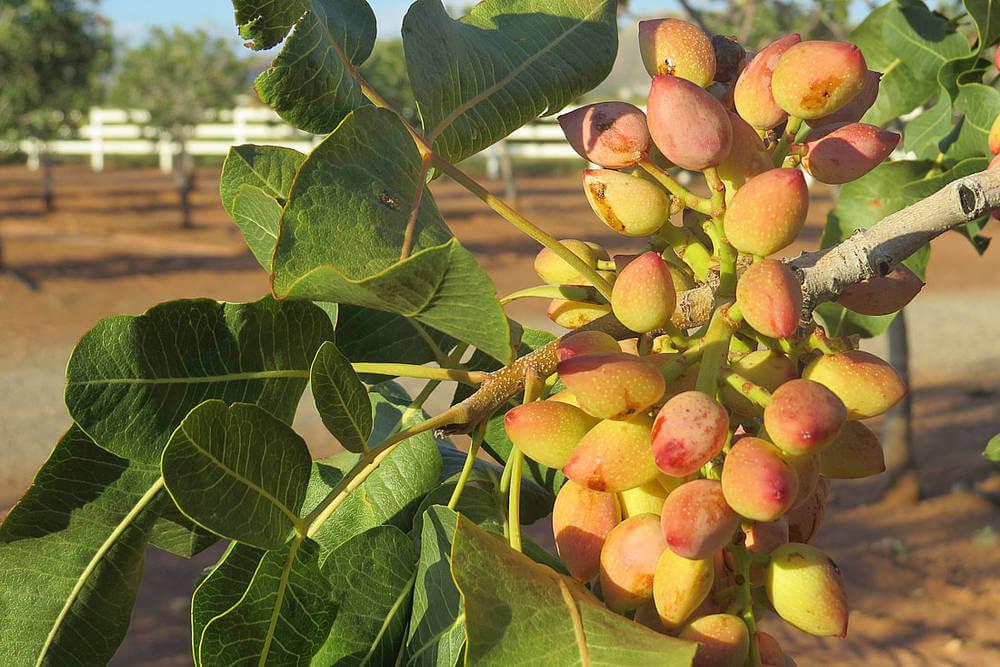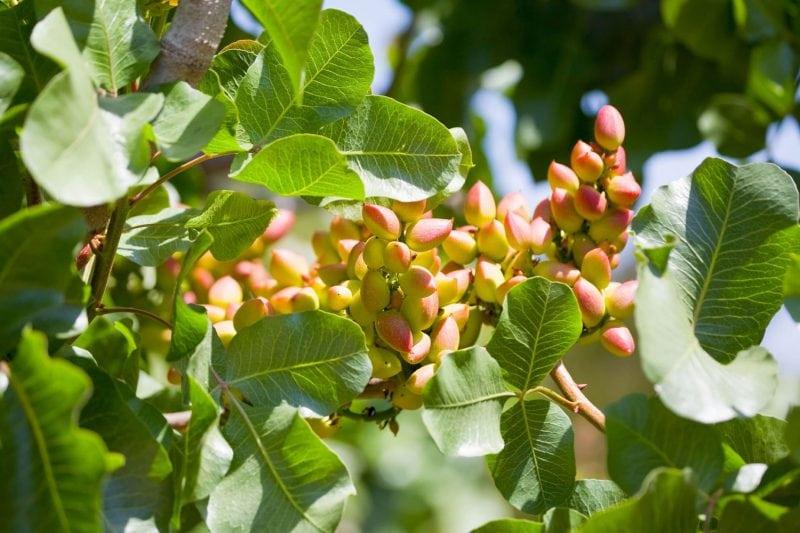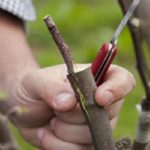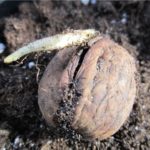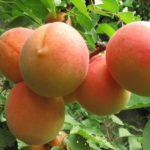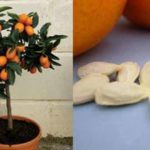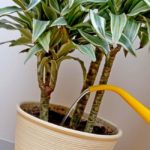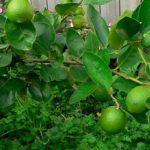The pistachio tree is a long-lived plant and a decoration for a personal plot. How do pistachios grow in Russia, how to cultivate them and where can they be found? Southern trees have taken root well on the Black Sea coast, in the areas of the Caucasus and Crimea mountains. A deciduous tree with high decorative properties bears delicious nuts as fruit, which can be either eaten fresh or made into oil used in cooking and cosmetology.
- General description and characteristics
- Where and how pistachios grow in Russia
- Is it possible to grow a pistachio tree yourself?
- How to grow a pistachio tree at home
- Preparing containers and soil
- How to choose and where to buy
- Planting and germination of nuts
- Further care
- Watering
- Top dressing
- Diseases and pests
- Features of pistachio harvesting and storage
- Decorative possibilities of wood
General description and characteristics
The historical homeland of southern trees is Afghanistan and the territory of modern Iran. Pistachio trees are common in southern Europe, where they are highly valued for the beneficial properties of the fruit. Pistachio trees are considered symbols of wealth and longevity. The plant can live up to a thousand years. The pistachio can reach 6-8 meters in height. Under favorable conditions, you can collect 26 kilograms of nuts per year from one plant. Belongs to the Sumakhov family.
Pistachios grow in tropical and subtropical climates. They are perfectly adapted to growing in desert areas, have a two-level root system: the main root goes deep underground and nourishes the plant with moisture, the surface part of the root system covers a radius of 25 meters around the trunk. Thus, the trees grow at a considerable distance from each other, and contact between the crowns is extremely undesirable.
Externally, pistachio thickets resemble a shrub forest; in desert conditions, the plants consist of several trunks.
Pistachios begin to bloom in spring and the inflorescences consist of two types of flowers: male and female. The crown of the tree is dense, spreading, low-set. The fruits ripen in the form of nuts covered with a hard shell.
Where and how pistachios grow in Russia
In our country, pistachio trees have been grown successfully since the 18th century. The plants were brought to Crimea, where they took root well. Now southern guests are distributed throughout the Black Sea coast and in the Caucasus Mountains.
The pistachio forest is a woodland.Due to the characteristics of the root system and crown structure, plants grow at a considerable distance from each other. Pistachios have high decorative characteristics, which is why gardeners are so fond of them. They are trying to grow this curiosity in regions with a temperate climate.
Is it possible to grow a pistachio tree yourself?
Having data on the technology of growing southern trees in Russia, you can grow pistachios at home or in your garden. The southern regions of the country are preferred. Trees have high demands on daylight hours, illumination and ambient temperature. They do not tolerate harsh cold winters, frosts and sudden temperature changes.
A decorative option can be grown at home, on the windowsill. As a rule, such plants are obtained from seeds, although pistachios are easily propagated by cuttings.
How to grow a pistachio tree at home
To get a southern tree sprout at home, you need:
- Select ripe nuts and soak them in warm water along with the shells (fruits from the grocery store will not work).
- You can add 1 drop of iodine or brilliant green to the water.
- After 10 days, plant the swollen seed in a pot with sandy soil and drainage.
- Cover the container with a glass jar or film cover.
- It is necessary to moisten the soil regularly, preventing the soil from drying out.
Young sprouts are very tender and fragile. They need to be transplanted to a permanent place very carefully and protected with additional shelters from the sun and wind at first. It is difficult to determine the gender of such seedlings.
Healthy, strong seedlings can be purchased at botanical gardens and specialty stores, or you can try to root a twig from an adult plant.
Preparing containers and soil
A mini version of the pistachio tree for home growing is planted in deep pots. The presence of drainage in the form of small pebbles at the bottom is mandatory. The soil should be sandy with the addition of a complex of mineral fertilizers. The soil and containers must be disinfected by treating them with a solution of potassium permanganate or scalding them with boiling water. It is important to choose the warmest and well-lit place; it is necessary to maintain high humidity.
How to choose and where to buy
Botanical gardens offer seedlings of various varieties of pistachio trees for sale. The plants are already strong and ready to be planted in a permanent place. When choosing planting material you should pay attention to:
- On the color of the leaves: they should be a rich green color, without spots or signs of disease.
- The trunk must be strong, without growths and cracks.
- The name of the plant variety and region of growth must be on the pot.
Healthy seedlings purchased from reliable, trusted stores take root easily and require less care than seedlings grown from fruit at home.
Planting and germination of nuts
Getting a sprout from a fruit is not so difficult; it is important to plant it correctly. The roots of pistachios go deep down and cover a large radius of the root circle, so the container should be both deep and wide. When planting a plant, this must be taken into account.
Drainage must be installed; the plant has a genetically inherent ability to extract moisture from the depths of the soil.
Further care
Heat and light are important parameters for the life of pistachios. In summer, a pot of pistachio can be placed on the veranda or balcony. There should be no drafts. In winter, choose the warmest room for the plant; pistachio has poor frost resistance.
Pistachios need to be looked after regularly and ensure that the tree does not become waterlogged by excessive watering.
Watering
Sandy soil with drainage is ideal for pistachios. Watering should not be frequent, otherwise the tree will get sick and the roots will begin to rot. When caring for a southern wonder, you must remember that the tree’s homeland is the desert. Once every six months, you can give the pistachio tree a “shower” or wipe the leaves with a cloth moistened with warm water.
Top dressing
The lover of drought and heat does not need much feeding. It is enough to lightly loosen the soil under the plant and water it 1-2 times a year with a liquid complex of mineral-organic fertilizers.
To refresh the color of the leaves and tone the stems, the southern plant is sprayed with an aqueous solution of brilliant green at the rate of 2 drops per 1 liter of water. This technique is a preventive measure against diseases.
Diseases and pests
Pistachio trees have strong immunity and, with proper care, practically do not get sick. A factor that can cause fungal diseases is excessive watering, which primarily affects the root system of the plant.
Pistachios grown at home are susceptible to insect pests, such as scale insects. In this case, it is advisable to use insecticides: “Iskra”, “Aktaru”. When controlling pests, it is recommended to remove 2-3 centimeters of surface soil.
For fungal diseases, fungicides are sprayed and the tree trunk is sprinkled with wood ash.
Features of pistachio harvesting and storage
Fruits from pistachio trees are harvested in the fall. Nuts are covered with a dense shell - a shell. This protective coating ensures long-term storage of the harvested crop.
How to preserve the harvest, nuances and storage rules:
- At home, dried nuts should be stored in sterilized containers with a lid in a dry room at a temperature of +18 0WITH.
- When storing the harvest, spoiled nuts are removed.
- The fruits can be frozen and stored in the refrigerator, in this case they are shelled.
- Pistachios that become moldy during storage should not be eaten.
- You can increase the shelf life of shelled nuts by using salt.
Fruits without a protective shell are stored for 2-3 months; in the shell, the shelf life increases to one year. It is important to prevent light and humidity from entering the rooms and containers where the nuts are stored.
Decorative possibilities of wood
Pistachio plantings are used for decorative purposes and to decorate urban landscapes. Thanks to its original spreading crown and curved trunk, the tree will become the highlight of a summer house or personal plot.
Florists use branches and flowers of plants to create bouquets and flower arrangements. The fruits ripen in the form of peculiar clusters, look unusual and immediately attract attention. Chinese pistachio is excellent for decorative cultivation in Russia.
Growing a pistachio tree is a labor-intensive task. But the result will be pleasantly surprising. A beautiful, outlandish tree will delight the eyes of a happy gardener every day and will decorate the surrounding landscape. A harvest of delicious, valuable nuts will be a pleasant reward for the work done.

